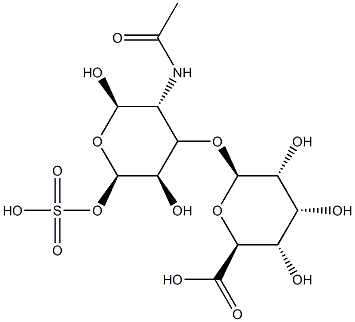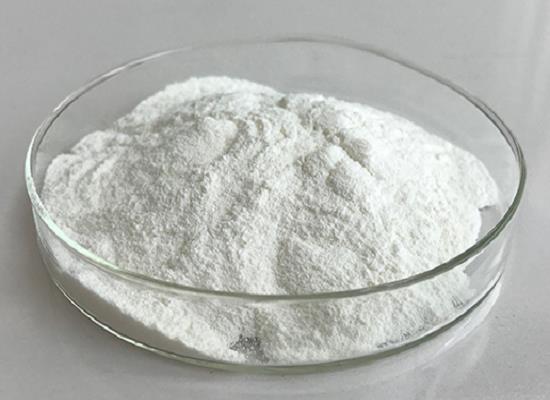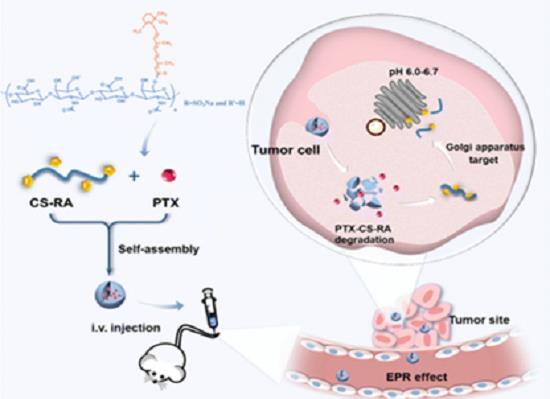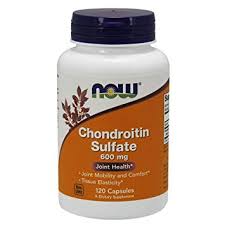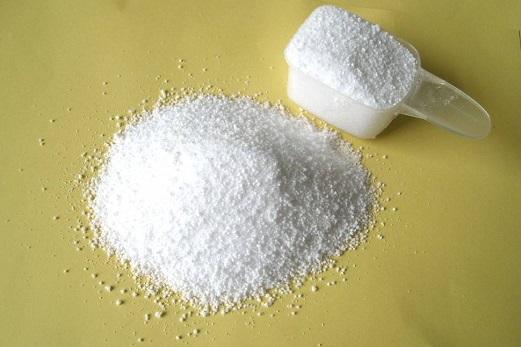Pharmacological effects of chondroitin sulfate
Chondroitin sulfate (CS, hereinafter referred to as CS) is a type of sulfated glycosaminoglycan, which exists in the connective tissues of humans and animals, mainly distributed in cartilage, bone, tendon, muscle membrane and blood vessel wall. D-glucuronic acid and N-acetyl-D-galactosamine are connected by 1,3 glycosidic bonds to form disaccharides, and the disaccharides are connected by β-1,4 glycosidic bonds. The relative molecular mass is generally 25,000 to 30,000 . According to the differences in the type of uronic acid and the position of the sulfate ester on hexamine in its molecular structure, it is mainly divided into chondroitin sulfate A (CS-A), chondroitin sulfate C (CS-C), and chondroitin sulfate D (CS- D), Chondroitin Sulfate E (CS-E), etc.
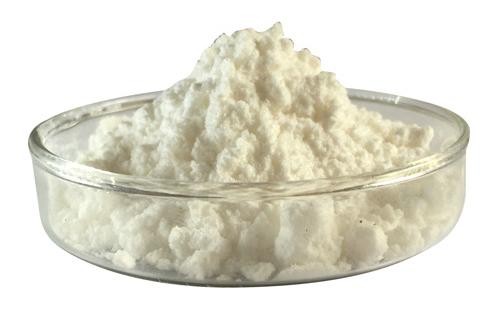
In Europe, the United States, Japan and other countries, CS is mainly used as a health food or medicine to prevent and treat cardiovascular and cerebrovascular diseases, osteoarthritis (OA), and neuroprotection. In recent years, as scholars have conducted more extensive research on the pharmacological effects and applications of CS, some new effects and mechanisms have been discovered, and its wider application in the prevention and treatment of diseases has also been explored. The CS we are using now is a type of natural acid mucopolysaccharide derived from animal cartilage tissue (because of its viscosity)-glycosaminoglycan (of which glycosaminoglycan is a representative component of animal proteoglycan, which is found in cartilage tissue It exists in the form of proteoglycan). Different types of chondroitin sulfate exist in different animals. Among them, the bones of pigs, cattle and sheep mainly contain chondroitin sulfate A, and the cartilage of sharks, squids and other marine animals mainly contains chondroitin sulfate C, etc. .
Physical and chemical properties
Molecular formula: (C14H21NO14S)n, the finished product is white powder in appearance, odorless and tasteless, easily soluble in water, insoluble in organic solvents such as ethanol, acetone, glacial acetic acid, etc. It expands rapidly after contact with water, and is unstable to heat. It needs to be sealed and stored away from light. . CS is a kind of natural acid mucopolysaccharide from animal cartilage tissue-glycosaminoglycan, which also includes hyaluronic acid (hyaluronic acid).
The role of chondroitin sulfate
Treatment of osteoarthritis: CS can reduce pain in patients with osteoarthritis (OA), improve joint function, reduce joint swelling and fluid accumulation, and prevent narrowing of the gap between the knee and hand joints. CS can alleviate the symptoms of OA (significantly reduce pain, shorten the time of morning stiffness, increase grip strength, and significantly improve function) and reduce the dosage of non-steroid anti-inflammatory drugs (NSAIDs). Compared with NSAIDs, In the treatment of OA, the cost of CS is lower and the gastrointestinal tolerance is better in long-term use. When NSAIDS is used, 2666 gastrointestinal adverse events (including 90 serious adverse events) occur in every 10,000 patients, while CS Basically no toxic side effects. CS has been listed as a slow-acting drug that changes the symptoms and conditions of OA and a drug for improving OA disease in clinical applications.
Others: such as adhesion regulation, mucosal protection, anti-adhesion, promotion of cell proliferation, inhibition of angiogenesis, treatment of corneal damage and protection of the cornea, anti-virus, etc.
Pharmacological action
Chondroitin sulfate is widely present in human and animal cartilage tissues. Its medicinal preparations mainly contain two isomers of chondroitin sulfate A and chondroitin sulfate C, and the content of chondroitin sulfate in cartilage of animals of different breeds and ages is different. Its pharmacological effects are as follows:
1. Chondroitin sulfate can remove lipids and lipoproteins in the blood in the body, remove cholesterol in blood vessels around the heart, prevent and treat atherosclerosis, and increase the conversion rate of lipids and fatty acids in cells.
2. Chondroitin sulfate can effectively prevent coronary heart disease. It has anti-atherosclerosis and anti-atherogenic plaque effects on experimental arteriosclerosis models; increases the coronary arteries or collateral circulation of atherosclerosis, and can accelerate experimental coronary arteriosclerosis or embolism caused by Healing, regeneration and repair of myocardial necrosis or degeneration.
3. It can increase the biosynthesis of cell messenger ribonucleic acid (mRNA) and deoxyribonucleic acid (DNA) and has the effect of promoting cell metabolism.
4. Low anticoagulant activity. Chondroitin sulfate has a mild anticoagulant effect, and every lmg of chondroitin sulfate A is equivalent to the anticoagulant activity of 0.45U heparin. This anticoagulant activity does not depend on antithrombin III to exert its effect, it can exert its anticoagulant activity through the fibrinogen system.
5. Chondroitin sulfate also has anti-inflammatory, accelerated wound healing and anti-tumor effects.
You may like
Related articles And Qustion
Lastest Price from Chondroitin sulfate manufacturers

US $1.00-100.00/KG2025-09-04
- CAS:
- 9007-28-7
- Min. Order:
- 1KG
- Purity:
- 95%
- Supply Ability:
- 300KG

US $0.00-0.00/kg2025-07-07
- CAS:
- 9007-28-7
- Min. Order:
- 1kg
- Purity:
- 90%min
- Supply Ability:
- 100KGS
